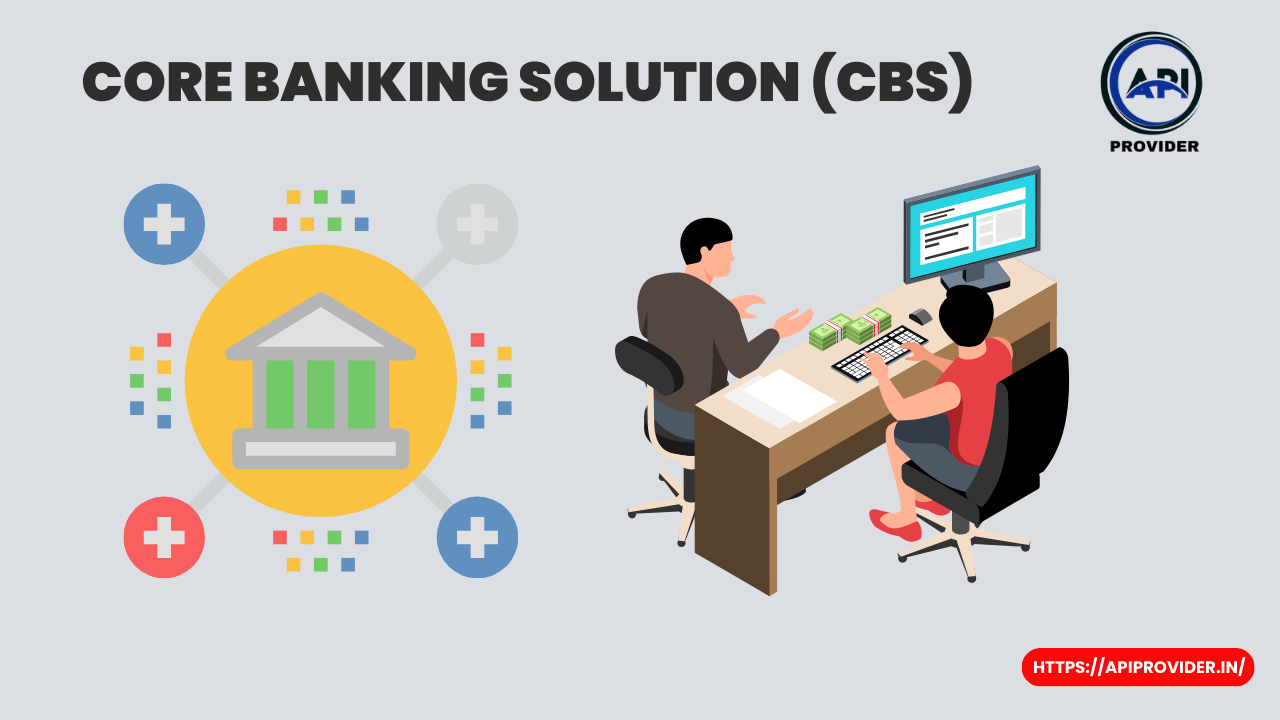Evolution of CBS
The journey from traditional banking systems to Core Banking Solution (CBS) implementation has been marked by significant advancements in technology and changes in customer expectations. Traditional banking systems relied on manual processes, paper-based documentation, and decentralized data storage. While these systems served their purpose in the past, they were often prone to inefficiencies, errors, and security risks.

The introduction of CBS revolutionized banking operations by centralizing data management, standardizing processes, and enabling real-time transactions across multiple channels. CBS integrates various banking functions, such as account management, deposits, loans, and payments, into a single, interconnected platform. This consolidation allows banks to streamline their operations, reduce costs, and improve efficiency.
Read More..
Components of CBS
Core Banking Solution (CBS) comprises several key components, each playing a crucial role in its functionality:
- Centralized Database: The central database serves as the backbone of CBS, storing all customer data, account information, transaction records, and other relevant details in a secure and accessible manner.
- Account Management Module: This module facilitates the creation, modification, and closure of accounts, as well as the management of account-related activities such as balance inquiries, statements, and transfers.
- Transaction Processing System: The transaction processing system handles the execution of various banking transactions, including deposits, withdrawals, fund transfers, bill payments, and loan disbursements, in real-time.
- Customer Relationship Management (CRM): The CRM module enables banks to manage customer interactions, track customer preferences, and offer personalized services to enhance customer satisfaction and loyalty.
- Security Infrastructure: Security measures such as encryption, authentication, access controls, and audit trails are essential components of CBS to protect sensitive data and prevent unauthorized access or fraudulent activities.
Benefits of CBS
The adoption of Core Banking Solution (CBS) offers numerous benefits for banks, financial institutions, and customers alike:
- Improved Operational Efficiency: CBS streamlines banking operations, automates routine tasks, and reduces manual intervention, leading to enhanced efficiency and productivity.
- Enhanced Customer Experience: With CBS, customers can access a wide range of banking services anytime, anywhere, through various channels such as branches, ATMs, internet banking, and mobile apps, thereby improving convenience and satisfaction.
- Cost Reduction: By eliminating redundant processes, optimizing resource utilization, and leveraging economies of scale, CBS helps banks lower operational costs and improve profitability.
- Real-Time Transactions: CBS enables real-time processing of transactions, providing customers with instant access to funds, timely updates on account activities, and faster resolution of inquiries or issues.
- Scalability and Flexibility: CBS is designed to accommodate growth, adapt to changing business requirements, and integrate new technologies, ensuring scalability and flexibility for banks to remain competitive in a dynamic market.
Challenges in Implementing CBS
While the benefits of Core Banking Solution (CBS) are undeniable, its implementation can pose certain challenges for banks and financial institutions:
- Technological Complexity: CBS implementation requires significant technological infrastructure, expertise, and resources, which may pose challenges for smaller banks or those with outdated systems.
- Data Migration: Migrating data from legacy systems to CBS can be a complex and time-consuming process, potentially leading to data integrity issues or disruptions in service.
- Employee Training: Transitioning to CBS requires comprehensive training for bank staff to familiarize them with the new system, processes, and procedures, which may entail additional costs and downtime.
- Security Concerns: Consolidating sensitive financial data into a centralized database raises concerns about data security, privacy, and compliance with regulatory requirements, necessitating robust security measures and risk management practices.
- Change Management: Implementing CBS involves significant changes in organizational culture, workflows, and customer interactions, which may encounter resistance from employees or customers accustomed to traditional banking practices.
CBS Implementation Process
The successful implementation of Core Banking Solution (CBS) requires careful planning, coordination, and execution. The following steps outline the typical CBS implementation process:
- Assessment and Planning: Conduct a thorough assessment of existing systems, infrastructure, and business processes to identify requirements, objectives, and potential challenges. Develop a detailed implementation plan outlining timelines, milestones, and resource allocation.
- Vendor Selection: Evaluate various CBS vendors based on factors such as functionality, scalability, reliability, support services, and cost-effectiveness. Choose a vendor that aligns with the bank’s requirements and long-term strategic goals.
- Customization and Configuration: Customize the CBS solution to meet the bank’s specific needs, preferences, and regulatory requirements. Configure the system settings, workflows, interfaces, and security parameters according to the bank’s business model and operational requirements.
- Data Migration and Testing: Migrate existing data from legacy systems to the new CBS platform while ensuring data integrity, accuracy, and confidentiality. Conduct extensive testing, including functionality testing, integration testing, performance testing, and user acceptance testing, to identify and resolve any issues or discrepancies.
- Training and Deployment: Provide comprehensive training and support to bank staff at all levels to ensure smooth transition and adoption of the new CBS system. Deploy the CBS solution in a phased manner, starting with pilot branches or departments, and gradually expanding to other locations.
- Monitoring and Optimization: Monitor the performance, usability, and effectiveness of the CBS system post-implementation, gathering feedback from users and stakeholders to identify areas for improvement or optimization. Continuously update and refine the system to align with evolving business needs and technological advancements.
Security Measures in CBS
Ensuring data protection and fraud prevention is paramount in Core Banking Solution (CBS) implementation. Banks employ various security measures and best practices to safeguard sensitive information and mitigate cybersecurity risks, including:
- Encryption: Encrypting data both in transit and at rest using strong encryption algorithms to prevent unauthorized access or interception.
- Authentication: Implementing multi-factor authentication mechanisms such as passwords, biometrics, tokens, or smart cards to verify the identity of users and prevent unauthorized access to accounts or systems.
- Access Controls: Enforcing granular access controls and role-based permissions to restrict user privileges based on their roles, responsibilities, and the principle of least privilege.
- Audit Trails: Maintaining comprehensive audit trails and logs of all system activities, transactions, and user interactions to track and trace any suspicious or unauthorized activities.
- Firewalls and Intrusion Detection Systems (IDS): Deploying firewalls, intrusion detection systems, and other network security appliances to monitor and protect the network infrastructure from malicious attacks, malware, or intrusions.
Future Trends in CBS
The future of Core Banking Solution (CBS) is marked by continuous innovation, digital transformation, and the adoption of emerging technologies to enhance customer experience, improve operational efficiency, and drive sustainable growth. Some key trends shaping the future of CBS include:
- Cloud Adoption: Increasing adoption of cloud-based CBS solutions to leverage scalability, flexibility, and cost-effectiveness, enabling banks to innovate and deliver services more efficiently.
- Artificial Intelligence (AI) and Machine Learning (ML): Integration of AI and ML technologies into CBS to automate routine tasks, personalize customer interactions, detect anomalies, and predict customer behavior, enhancing operational efficiency and decision-making.
- Open Banking and APIs: Embracing open banking initiatives and APIs (Application Programming Interfaces) to facilitate seamless integration with third-party applications, enable collaboration with fintech partners, and create innovative banking ecosystems.
- Blockchain Technology: Exploring the potential of blockchain technology to enhance security, transparency, and efficiency in banking operations, particularly in areas such as identity verification, payments, and smart contracts.
- Digital Customer Engagement: Leveraging digital channels, personalized services, and omnichannel experiences to engage customers more effectively, deepen relationships, and drive customer loyalty and retention.
Conclusion
Core Banking Solution (CBS) has emerged as a transformative force in the banking industry, enabling banks to modernize their operations, enhance customer experience, and stay competitive in an increasingly digital and interconnected world. By understanding the components, benefits, challenges, implementation process, security measures, and future trends of CBS, banks can harness its full potential to drive innovation, growth, and success in the years to come.
